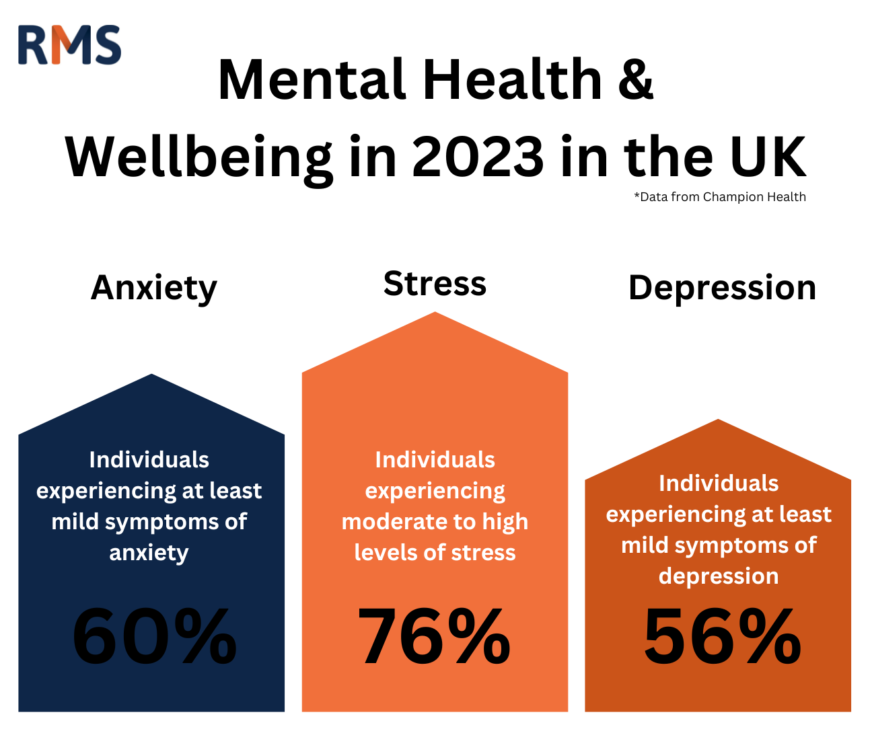With #WorldMentalHealthDay on the horizon, we’re taking a deep dive into anxiety and depression in the UK.
First up, the stats:
- Mixed anxiety and depression is Britain’s most common mental disorder
- 1 in 6 people report experiencing a common mental health problem
- An estimated 822,000 workers are affected by work-related stress, depression or anxiety every year
As burnout, anxiety and mental exhaustion rates reach record levels, improving mental wellbeing for employees should be a major focus for employers. An estimated 12 billion working days are lost every year globally to depression and anxiety at a cost of billions of pounds.
You can help make a difference for your workers by investing in strategies, tools and programs that foster a balanced, healthy work environment. Tips from our expert Abigail Howey:
1. Mental health training and awareness: Provide comprehensive mental health training to employees and managers to raise awareness about mental health issues, reduce stigma, and promote understanding. Train yourself and your colleagues in mindful and empathetic leadership.
2. Provide mental health resources: Ensure employees have access to confidential mental health resources and services, including helplines, counseling, and educational materials that can support their mental health.
3. Flexible work arrangements: Implement flexible work schedules or remote work options to allow employees to manage their workload in a way that supports their mental health and promotes a healthy work-life balance.
4. Stress management programs: Offer stress reduction programs or workshops focusing on mindfulness, relaxation techniques, and stress management to equip employees with tools to cope with workplace pressures.
5. Foster a supportive work environment: Create a culture of empathy, understanding, open communication, and mutual support within the workplace, encouraging employees to seek help and support one another without fear of judgment.
6. Regular check-ins and feedback: Conduct regular check-ins with employees to gauge their well-being, address concerns, and provide feedback to foster a positive and supportive work environment. Ask employees for feedback on how the organisation can meet their mental health needs.
By implementing these strategies, employers can prioritise and improve the mental well-being of their workforce on World Mental Health Day and throughout the year.



